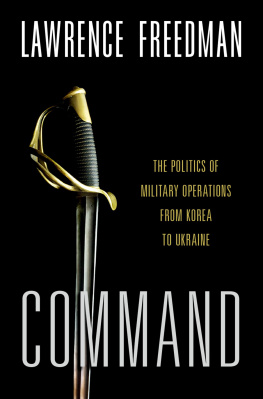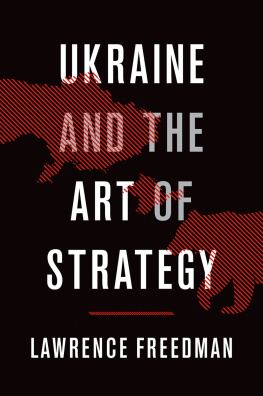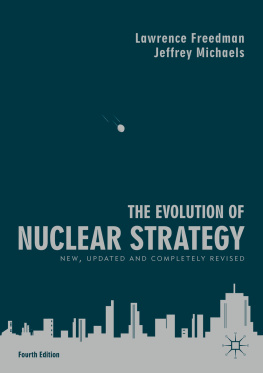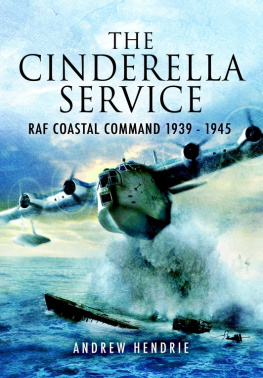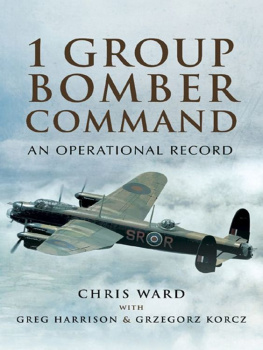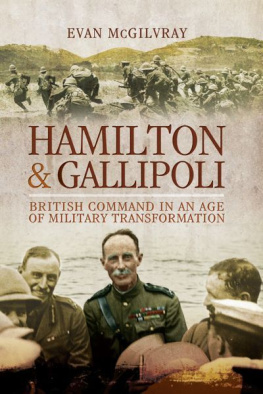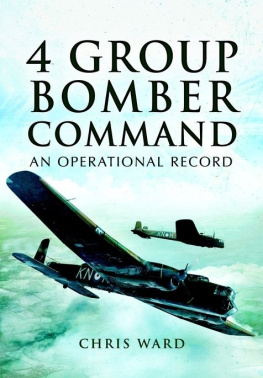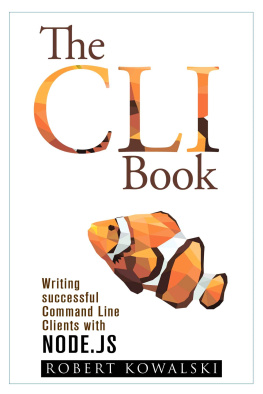Lawrence Freedman - Command: The Politics of Military Operations from Korea to Ukraine
Here you can read online Lawrence Freedman - Command: The Politics of Military Operations from Korea to Ukraine full text of the book (entire story) in english for free. Download pdf and epub, get meaning, cover and reviews about this ebook. year: 2022, publisher: Oxford University Press, genre: Politics. Description of the work, (preface) as well as reviews are available. Best literature library LitArk.com created for fans of good reading and offers a wide selection of genres:
Romance novel
Science fiction
Adventure
Detective
Science
History
Home and family
Prose
Art
Politics
Computer
Non-fiction
Religion
Business
Children
Humor
Choose a favorite category and find really read worthwhile books. Enjoy immersion in the world of imagination, feel the emotions of the characters or learn something new for yourself, make an fascinating discovery.
- Book:Command: The Politics of Military Operations from Korea to Ukraine
- Author:
- Publisher:Oxford University Press
- Genre:
- Year:2022
- Rating:4 / 5
- Favourites:Add to favourites
- Your mark:
Command: The Politics of Military Operations from Korea to Ukraine: summary, description and annotation
We offer to read an annotation, description, summary or preface (depends on what the author of the book "Command: The Politics of Military Operations from Korea to Ukraine" wrote himself). If you haven't found the necessary information about the book — write in the comments, we will try to find it.
Command in war is about forging effective strategies and implementing them, making sure that orders are appropriate, well-communicated, and then obeyed. But it is also an intensely political process. This is largely because how wars are fought depends to a large extent on how their aims are set. It is also because commanders in one realm must possess the ability to work with other command structures, including those of other branches of the armed forces and allies. In Command, Lawrence Freedman explores the importance of political as well as operational considerations in command with a series of eleven vivid case studies, all taken from the period after 1945. Over this period, the risks of nuclear escalation led to a shift away from great power confrontations and towards civil wars, and advances in communication technologies made it easier for higher-level commanders to direct their subordinates.
Freedman covers defeats as well as victories. Pakistani generals tried to avoid surrender as they were losing the eastern part of their country to India in 1971. Iraqs Saddam Hussein turned his defeats into triumphant narratives of victory. Osama bin Laden escaped the Americans in Afghanistan in 2001. The UK struggled as a junior partner to the US in Iraq after 2003. We come across insubordinate generals, such as Israels Arik Sharon, and those in the French army in Algeria, so frustrated with their political leadership that they twice tried to change it. At the other end of the scale, Che Guevara in Congo in 1966 and Igor Girkin in Ukraine in 2014 both tried to spark local wars to suit their grandiose objectives.
Freedman ends the book with a meditation on the future of command in a world that is becoming increasingly reliant on technologies like artificial intelligence. A wide-ranging and insightful history of the changing nature of command in the postwar era, this will stand as a definitive account of a foundational concept in both military affairs and politics.
Lawrence Freedman: author's other books
Who wrote Command: The Politics of Military Operations from Korea to Ukraine? Find out the surname, the name of the author of the book and a list of all author's works by series.

